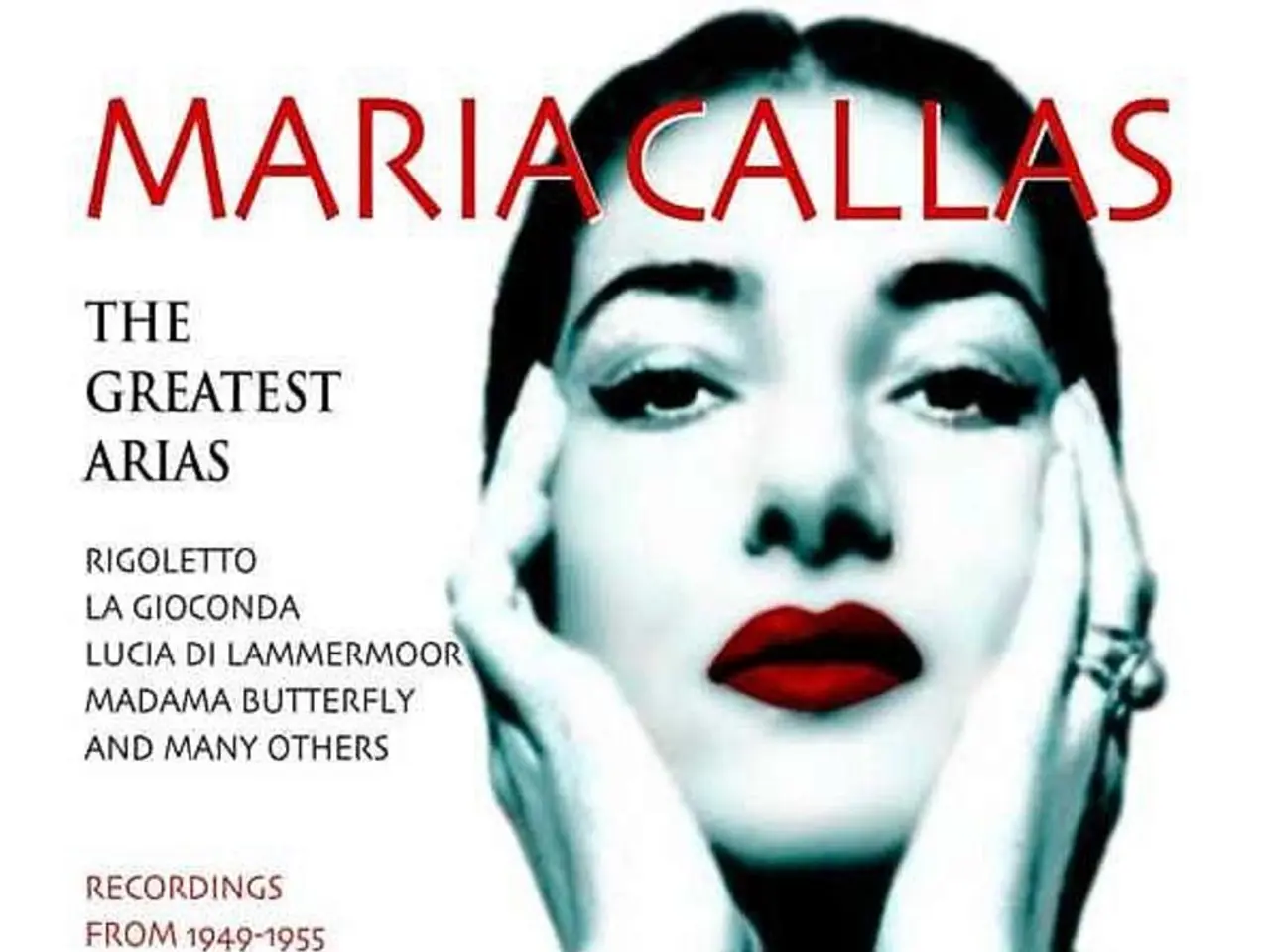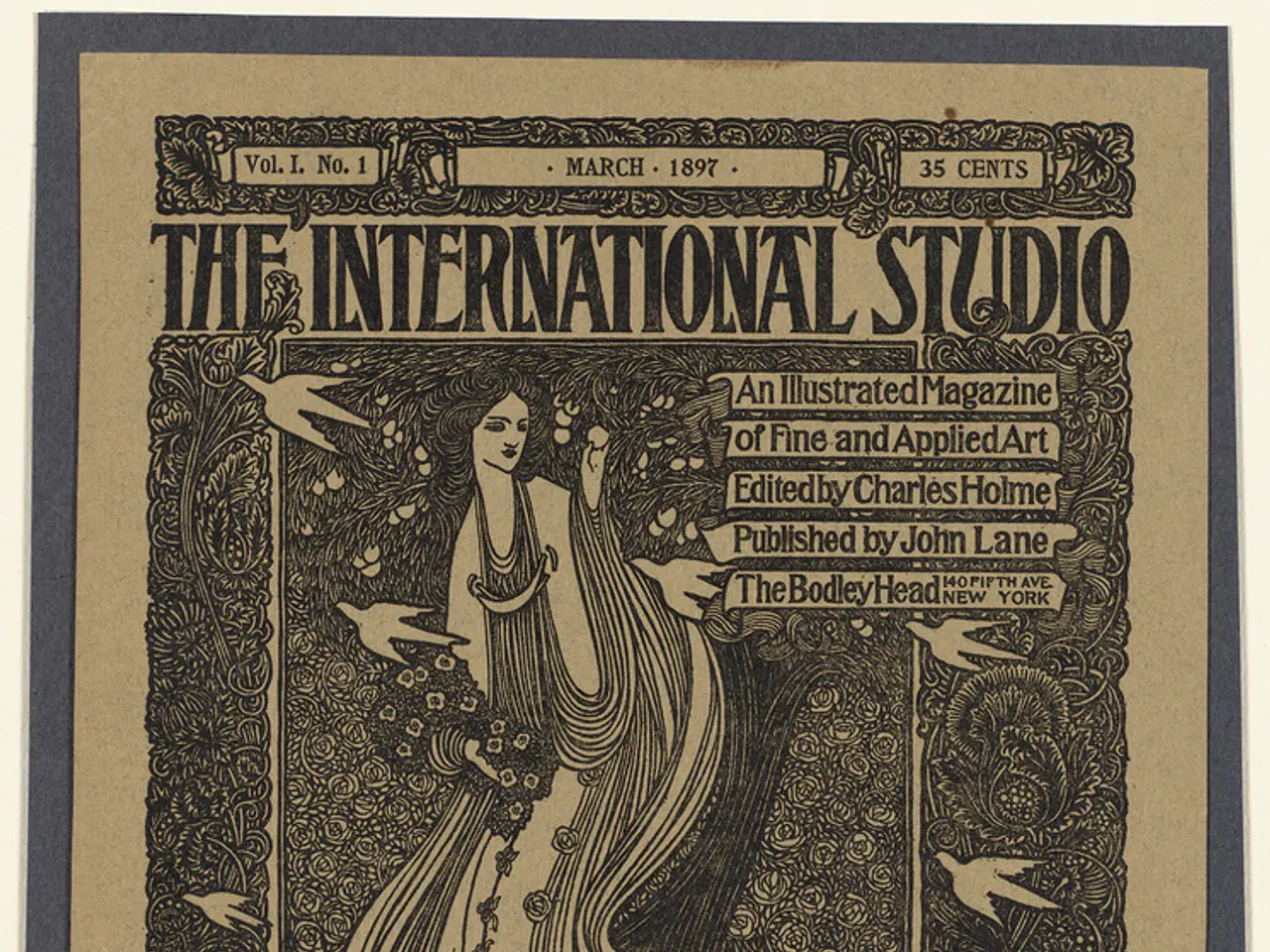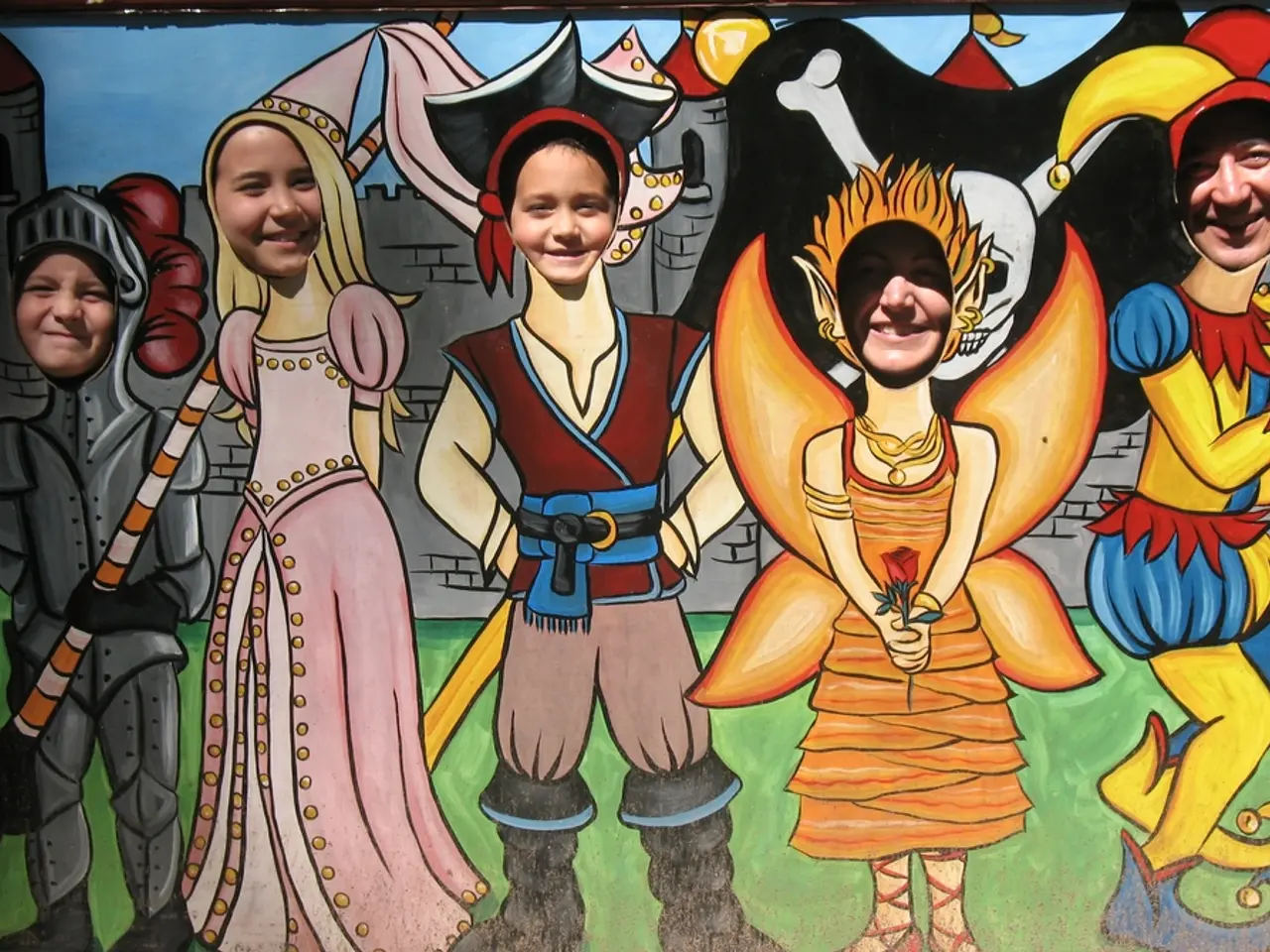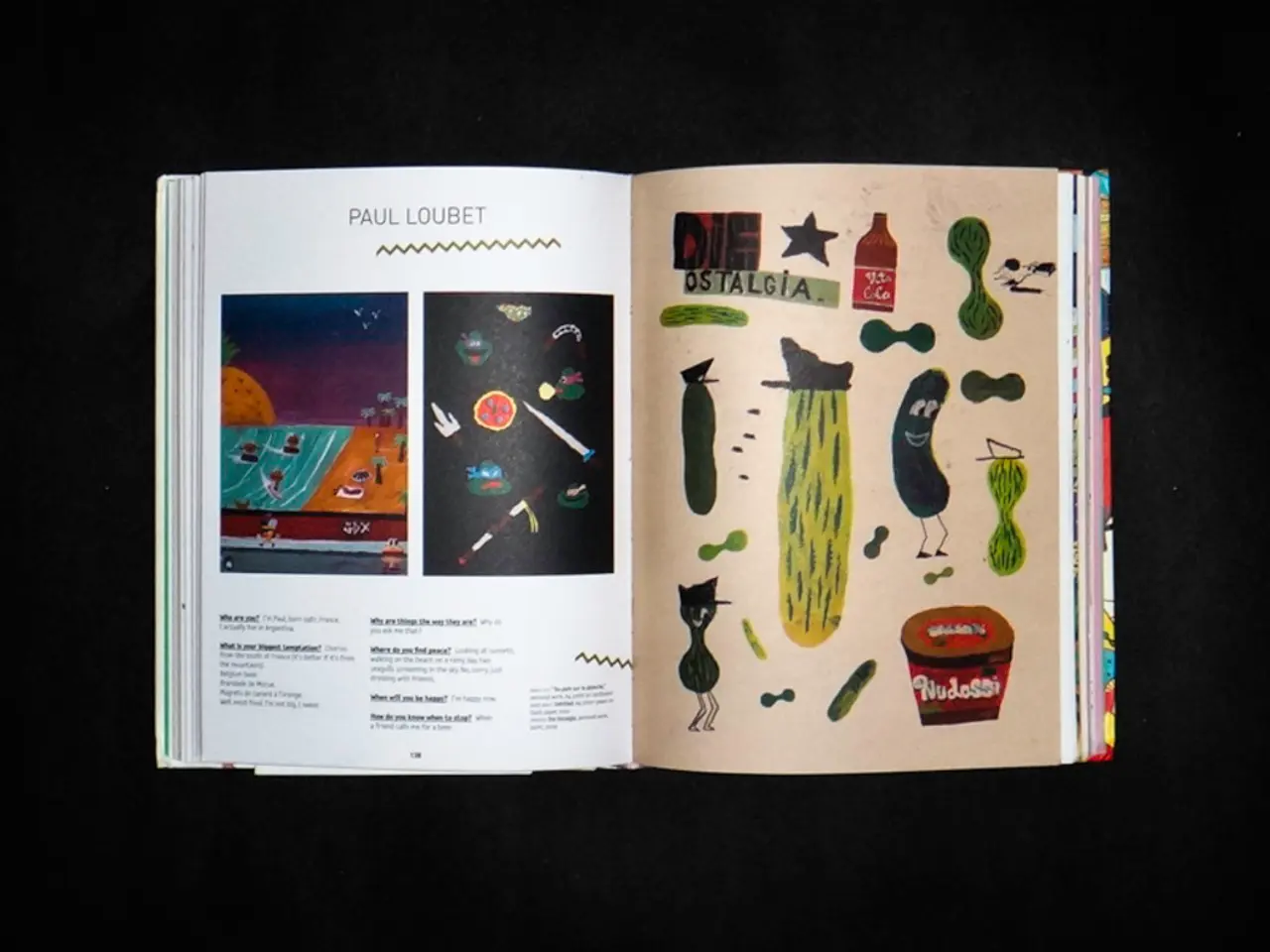Pondering the worth of transforming literary classics into comic book adaptations?
In the realm of graphic novel adaptations, Austrian cartoonist and illustrator Nicholas Mahler (b. 1969) has made a name for himself with his innovative and engaging interpretations of canonical European literature. His works, which include adaptations of Marcel Proust, James Joyce, Robert Musil, Thomas Bernhard, and Franz Kafka, have received widespread acclaim for their wit, conceptual rigor, and ability to distill complex texts into accessible, visually engaging forms.
Mahler's adaptations, such as his Thomas Bernhard's Old Masters, offer a unique blend of philosophical grumbling and deeply human pathos. The Old Masters adaptation, translated by James Reidel, features strips of Bernhardian soliloquy pasted over Vienna's black-white-gold visual grandeur. The old man's ranting pushes the illustration into digressions, obsessions, and moments of bathos, all while maintaining the ironic tone that Bernhard's work is known for.
Seagull Books, a publisher known for its graphic novel adaptations of authors like Proust, Joyce, Musil, Bernhard, and others, has been publishing Mahler's works. His adaptations are more like variations in the jazz sense: book-length art riffs on author and work.
Critics and readers frequently highlight Mahler's inventive renderings that preserve the essence of the original works while introducing a humorous, cartoonish perspective. His adaptations are celebrated for being both faithful to the spirit of the source material and boldly original in their visual interpretation.
Mahler's style is characterized by minimalist, cartoonish drawings, visual humor, narrative condensation, intertextuality, and playfulness. He employs simple, almost caricatural line work, which creates an ironic contrast to the cerebral and often abstract source material. His adaptations frequently use visual gags and comic timing to illuminate the complexities and absurdities of the original texts.
Despite the humorous approach, Mahler's adaptations maintain the melancholic or ironic tone of the original authors, particularly with Kafka and Bernhard. His Proust adaptation, for example, features a rich visual language for the Proustian layering and twisting of time, for the melancholy working of memory, and for the intersubjective limits on what one sees and one remembers.
While some literary purists may question the appropriateness of adapting such dense and introspective literature into graphic novels, Mahler’s playful approach often disarms criticism by making the works approachable without trivializing them. His work is thus seen as a unique contribution to the field of literary adaptation, bridging the gap between high literature and popular culture.
In the coming year, Mahler's Kafka adaptation, a "comic biography," is set to be released by Pushkin Press. With each new adaptation, Mahler continues to push the boundaries of what graphic novels can achieve, offering readers a fresh and engaging perspective on some of the most influential works in literature.
Mahler's adaptations, such as his forthcoming Kafka comic biography, showcase a blend of intellectual depth and visual humor, making canonical European literature more accessible to a wider audience through the fusion of fashion-and-beauty and lifestyle elements in his unique graphic novel style. His adaptations, published by Seagull Books, offer a refreshing take on books, blending the Old Masters' philosophical grumbling with Vienna's visual grandeur, and adding a touch of entertainment to the reading experience.






